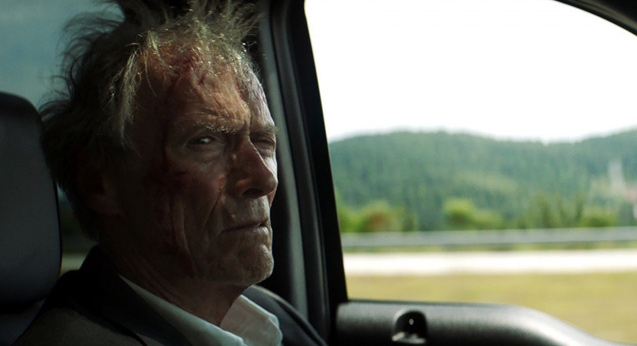Clint Eastwood’s solid direction in The Mule deserves a better script

Clint Eastwood reunites with the writer of 2009’s Gran Torino to direct and star in this crime drama about an elderly war veteran who smuggles cocaine through Michigan for a Mexican drug cartel.
Clint’s direction is solid as ever, critic Adam Fresco reports, but the film deserves a better script.
Clint Eastwood stars and directs in this tale of an aged drug mule, from a based-on-a-true-story screenplay by Gran Torino scribe Nick Schenk. Octogenarian Eastwood plays 90-year-old Korean war vet turned horticulturalist Earl Stone. His flower farm’s foreclosed and he’s struggling to make ends meet when he’s offered a job as a driver, no questions asked. Although, to be fair, if you rolled up to collect a suitcase from stereotypical muscled Mexican gang members covered in neck tattoos, waving sub-machine guns in your face, and telling you not to look in the bag, you might be a tad suspicious.
Not Earl though.
Singing along to old songs on the car radio as he smuggles huge quantities of cartel cocaine, Eastwood’s Earl is a grumpy old git, stooped and shuffling, mumbling such gems as “Damn Internet ruins everything” in an old-school/casually racist/misogynistic/doesn’t understand texting kinda way. Clint’s chiselled charisma carries the plodding plot, whilst a star-studded supporting cast fills out underwritten, cardboard-cut-out characters. Bradley Cooper, Michael Peña and Laurence Fishburne phone in their performances as DEA agents, Dianne Wiest does her best as Earl’s long-suffering ex-wife, as does Clint’s daughter Alison as, um, his daughter, and Andy Garcia’s cartel don is given little to do other than wave a gold-plated shotgun.
Clint’s direction is solid as ever, with little fuss or show, aside from one great shot (literally) of Garcia’s don. A smattering of f-bombs, almost no on-screen violence, a wry twinkle in Clint’s eyes, and a narrative that barely touches on the issues raised, from the morality of drug-smuggling to espousing outmoded, politically incorrect views, and the regret felt by a man realising too late he’s put work before family. There’s an attempt at Robin Hood morality, as Earl seeks to make up for lost time, using his ill-gotten gains to help others, but it’s not until the very end that he all-too-briefly reflects on his culpability.
Long-time Eastwood fans may enjoy the legend’s craggy face and dry humour, but the subject matter deserves a better script, one that’s not reliant solely on the fading charisma of its star.

















